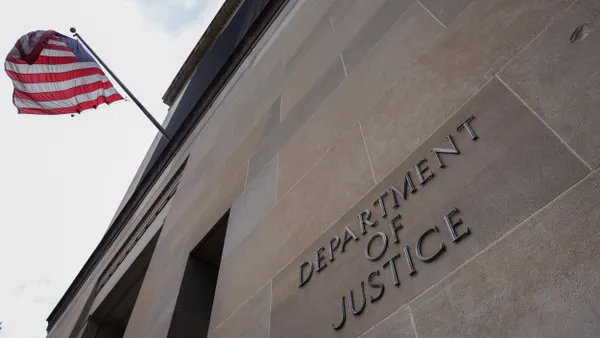Dive Brief:
- The 20 finalists for the Canada Smart Cities Challenge were announced Friday morning at the Federation of Canadian Municipalities’ annual conference in Halifax, Nova Scotia.
- Canadian Prime Minister Justin Trudeau announced the finalists in a keynote address, with the winners to be announced this winter. "The applications we received for this contest were incredible," he said. "They were incredibly innovative, and I know this process has inspired many communities to dream bigger than ever before."
- The finalists, chosen from 130 applicants, are as follows:
Name Province Akwesasne/Mohawk Council of Akwesasne Ontario and Quebec (Mohawk Nation) Biigtigong Nishnaabeg Ontario Bridgewater Nova Scotia Cree Nation of Eastmain Quebec Yellowknife Northwest Territories Airdrie Alberta Cote Saint-Luc Quebec Saint Mary’s First Nation New Brunswick Guelph and Wellington Counties Ontario Nunavut Association of Municipalities Nunavut Parkland County Alberta Richmond British Columbia Saskatoon Saskatchewan The Pas Manitoba Greater Victoria British Columbia Edmonton Alberta Montreal Quebec Quebec City Quebec Vancouver and Surrey British Columbia Waterloo Ontario
Dive Insight:
In a speech at the Smart Cities New York conference last month, Canada’s Minister of Infrastructure and Communities Amarjeet Sohi said diversity is the country’s greatest strength, and this slate of finalists is certainly diverse. They range from large urban centers such as Vancouver, Montreal and Edmonton; mid-size cities such as Airdrie, Alberta; as well as counties and Indian reservations. Sohi said previously there is plenty of "untapped potential" out there, and with these finalists, the government clearly wants to start tapping that potential.
And there is also a focus on diversity in the applications themselves, per an analysis by Roy Wiseman at ITBusiness. He found almost one-third of the total submissions focused on the themes of economic opportunity — such as increasing job opportunities and improving workforce skills — or empowerment and inclusion, which can include reducing homelessness, integrating new residents or helping more people participate in the democratic process. Wiseman said the applications "clearly broaden our understanding" of what a smart community is and have innovative ideas like flood mitigation, suicide prevention and clean electricity.
In his remarks, Trudeau noted the importance of partnerships across all levels of government to find "innovative new ways to meet the needs of their citizens."
"Strong collaborative leadership across all levels of government can produce infinitely better results than if we go it alone," he added. One notable omission is Toronto, but with the city's Sidewalk Labs smart city initiative set to begin testing soon, there was perhaps less onus for them to be shortlisted.
And while all applications are publicly available online for others to peruse and perhaps adapt for their own uses, competition will be fierce as communities compete for the grand prize of $50 million CAD ($38.5 million USD), two prizes of $10 million CAD ($7.7 million USD) for those with populations of up to 500,000 people, and one $5 million CAD ($3.8 million USD) for those with populations of up to 30,000. "Together, we will build a stronger Canada," Trudeau said.












